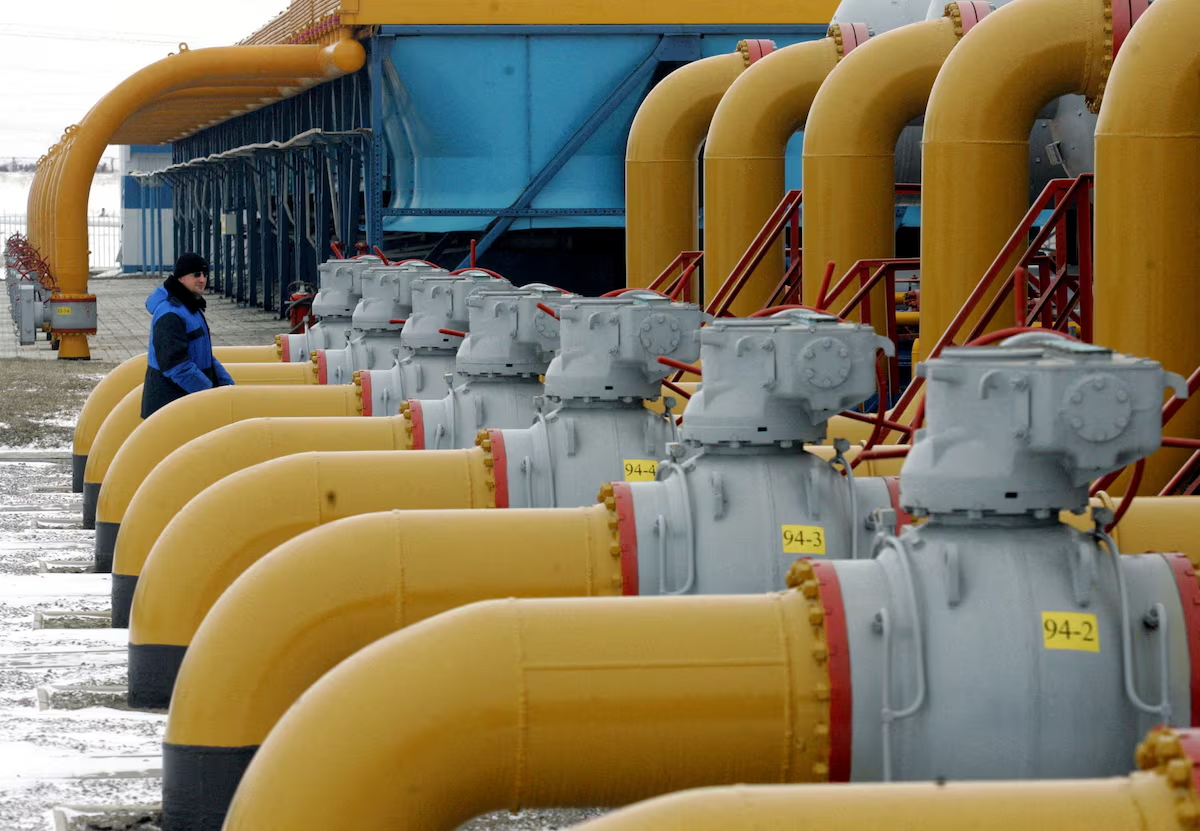In a historic move, Ukraine has halted Russian natural gas exports to Europe through its territory, marking the expiration of a five-year transit agreement amid ongoing military conflict. The shutdown, effective from 8 a.m. Moscow time (05:00 GMT) on January 1, 2025, has sent shockwaves across the region, further redefining the energy landscape in Europe.
Ukraine Declares a “Historic Event”
“We stopped the transit of Russian gas. This is a historic event,” said Ukraine’s Energy Minister German Galushchenko. “Russia is losing its markets and will suffer financial losses. Europe has already made the decision to abandon Russian gas.”
The halted pipeline, which transported gas to countries such as Slovakia, Moldova, and Hungary, underscores Ukraine’s strategic position in the geopolitical energy battle and its push to sever ties with Russian energy dependence.
Russia Responds: No Legal Path Forward
Gazprom, Russia’s state-owned energy giant, confirmed the stoppage, stating that Ukraine’s refusal to renew the agreement left no “technical and legal ability” to continue gas transit. The company emphasized this development on its Telegram channel, signaling the end of one of its oldest routes to Europe.
Mixed Reactions in Europe
Brussels appeared prepared for the disruption. “The Commission has been working for more than a year specifically on preparing for a scenario without Russian gas transiting via Ukraine,” the European Union stated, minimizing the impact on the bloc.
However, Slovakian Prime Minister Robert Fico was critical, warning, “Halting gas transit via Ukraine will have a drastic impact on us all in the EU, but not on the Russian Federation.” Slovakia, which relies heavily on Russian gas, faces significant energy challenges as a result.
Moldova Feels the Heat
The impact is already being felt in Moldova’s breakaway Transnistrian region, where gas supplies have been cut. Heating outages have been reported, and authorities are urging residents to conserve energy. Moldova’s main territory, however, has managed to avoid blackouts by importing power from neighboring Romania.
Long-Term Consequences for Europe and Russia
The cessation of gas transit through Ukraine marks the final nail in the coffin of Russia’s dominance in the European energy market, a position it once used to exert political and economic leverage. While Europe has diversified its energy sources, relying increasingly on liquefied natural gas (LNG) and non-Russian pipelines, the transition has come at a cost.
Al Jazeera’s Jonah Hull noted from Kyiv that while the EU has lessened its dependence on Russian gas, it now relies on more expensive alternatives, potentially affecting its economic competitiveness.
For Russia, the loss of this key transit route represents a blow to its energy profits. Ukrainian President Volodymyr Zelenskyy said Moscow has lost “one of the most profitable and geographically accessible markets” for its gas, accusing Russia of resorting to “cynical blackmail.”
A New Era in European Energy
The shutdown of the Ukrainian transit route caps a decade of tension that began with Russia’s annexation of Crimea in 2014. It also reflects the EU’s accelerated efforts to reduce reliance on Russian energy following the 2022 military conflict in Ukraine.
Although Russia continues to export gas via the TurkStream pipeline through the Black Sea, its grip on the European market is rapidly fading. For countries like Hungary, which maintains close ties with Moscow, alternative routes will cushion the impact.
This development signals not just a shift in energy logistics but a broader reordering of political and economic ties in the region, with significant implications for the years ahead.







